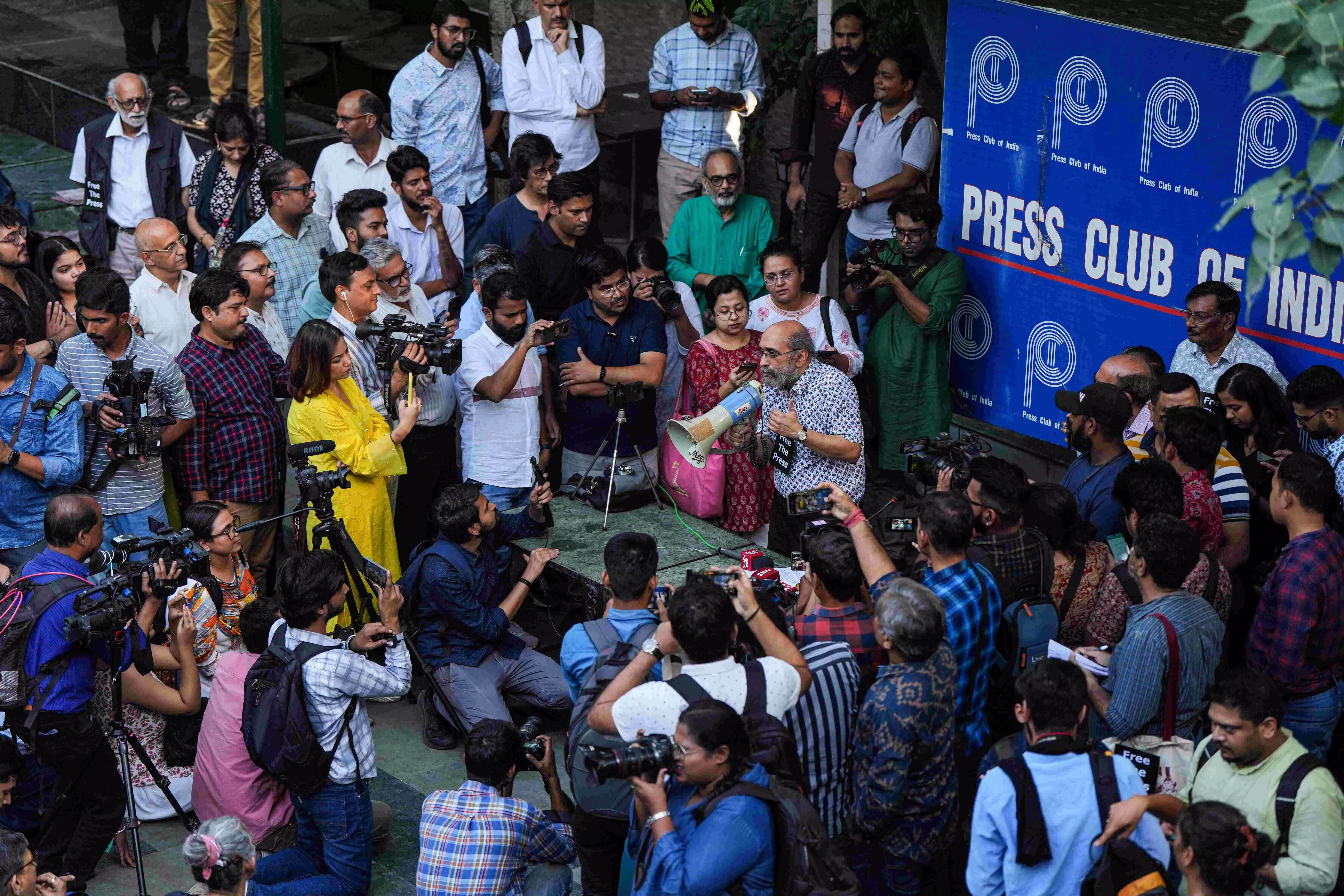Stifling dissent & democracy?

Dissent is the crowning jewel of democracy. It is the lifeblood of a vibrant, healthy society where the voices of the people can be heard and debated. When dissent is stifled, democracy itself is in peril. In one of the world's largest democracies, India, the recent arrests of NewsClick's founder Prabir Purkayastha and HR head Amit Chakraborty under the Unlawful Activities Prevention Act (UAPA) have raised alarm bells about the erosion of democratic values. The Press Club of India became a gathering place for journalists on Wednesday to raise their voices against the stifling of dissent by the ruling establishment. These arrests, accompanied by the seizure of mobile phones, laptops, and other gadgets of numerous working journalists, not only undermine data privacy and security but also violate the fundamental principles of a democratic society. The government's defence of these actions centres on allegations that NewsClick received funds from China and might be involved in terrorism-related activities. These claims are based on a New York Times article dated August 10, which was part of a broader investigation unravelling “a global web of Chinese propaganda”. However, the article had failed to provide concrete evidence of NewsClick advancing Chinese interests. Therefore, the police action against NewsClick appears to be based on unsubstantiated charges, which goes against the very essence of democracy. It is worth noting that NewsClick has been under the government's scrutiny for some time. An FIR was filed against the organisation in August 2020, and the Enforcement Directorate (ED) searched its premises in February 2021. Following this, the Delhi High Court had directed the ED not to take coercive action against the organisation. This protection was extended, and the case is set for a hearing on October 9. However, the recent onslaught against NewsClick raises concerns that these actions might be an attempt to bypass the legal protections provided by the court. The police's modus operandi in this case is reminiscent of other instances where the UAPA had been misused to incarcerate individuals for prolonged periods without substantial evidence. This misuse of the UAPA threatens the very foundations of justice and fairness in a democratic society. It is difficult to escape the impression that the government's actions are driven by a sense of vengeance. NewsClick has been a vocal critic of the government's policies and actions, including the farmers' protest, Delhi riots, revision of history books, and government’s connections with leading corporates. Journalists from the organisation have consistently raised questions that challenge the status quo. The fact that the police have allegedly probed the journalists about their reporting on politically contentious issues further strengthens the argument that the government may be acting out of retribution. If this is indeed the case, then Indian democracy is teetering on the brink of an abyss. Such actions tarnish the image of a nation that prides itself on its democratic values, and make it abundantly clear why India has been sliding in the rankings of the Press Freedom Index. Placing 161st out of 180 nations, India now ranks below countries like Laos, the Philippines, and Pakistan when it comes to press freedom. This decline is a stain on our democratic credentials. Given that this matter pertains to the curtailing of fundamental rights, it is imperative that the Supreme Court swiftly intervenes. The Supreme Court serves as the guardian of fundamental rights and must protect the bedrock principles of democracy. In these challenging times, it is crucial for the judiciary to uphold the principles that underpin our democracy. Dissent is not a threat to democracy; it is a testament to its strength. When voices are silenced, democracy withers. The arrest of NewsClick's founders and the crackdown on its journalists should serve as a wake-up call for all those who cherish democracy. It is time for the guardians of justice and democracy to stand up and ensure that the principles of freedom, transparency, and accountability are upheld. A democratic India cannot afford to falter in this critical moment.



